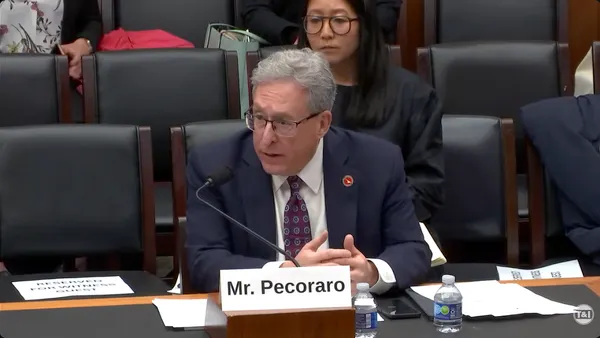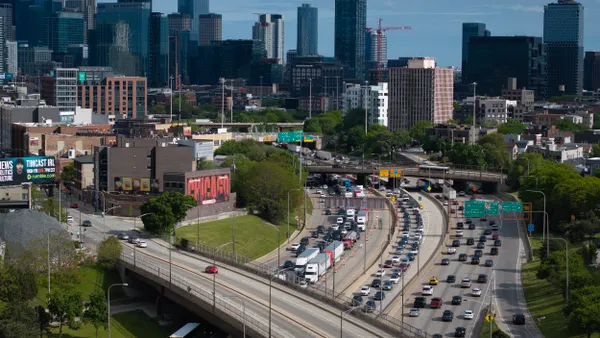Dive Brief:
- The Florida legislature is considering a bill that would create statewide regulations for dockless bike-share systems.
- The bill is designed to provide uniformity in how dockless bike-share systems are governed, and it would remove all municipal authority over the businesses.
- If passed, the law will go into effect on July 1.
Dive Insight:
Bike-share systems are a lot like municipal recycling programs in that they can cause confusion for users. What's allowed in one area might not fly in a neighboring city. If this law passes, it would help consumers better understand how dockless systems work throughout the state — and eliminating confusion often leads to greater resource use.
A uniform statewide framework would also make dockless bike-share implementation easier on municipalities. It would remove the need for municipal employees to conduct extensive research on best practices for liability, safety and land use, among other things. The amount of set-up work on the front end — such as research and permitting — sometimes acts as a deterrent to welcoming dockless bike-shares, as does ongoing oversight and regulation enforcement.
Although funding generally is a larger barrier, regulatory hurdles can be daunting. Some regions are finding success with collaborating to form a more widespread bike-share system, such as the programs under development with three cities in the Sacramento area and 16 cities and towns in the Boston area. The Florida statewide proposal might be a larger scale version of these collaborations, in which the onus for oversight is not on any one municipality.
The proposed law accounts for potential objectionable behavior on the part of the bike-share companies, some of which other cities across the country are struggling with. For example, consumer bike dumping in inappropriate places leaves dockless bikes littering cities, which is a problem in Dallas, Seattle and other cities. It's a well-known issue that has some cities souring on dockless systems before they've even been in the United States for a year. But the proposed Florida law would hold bike-share companies accountable for their businesses and how consumers use them, including unlawful bike parking. Businesses would also have to meet minimum insurance coverage and bike maintenance requirements.
On the flip side, although Florida's law would negate cities' authority over dockless bike-share businesses, it would also negate their rights to oppose the systems. The legislation states that the businesses "shall be governed exclusively by state law," meaning local governments could not levy taxes or business fees of any type from bike-share businesses and they would not be able to require local licenses. The cities could not prevent or limit dockless bike-sharing operations in any way or subject the companies "to any rate, entry, operation, or other requirement of the local governmental entity," according to the draft legislation.
This proposed bill could ease a lot of the troubles a city faces when adopting a dockless bike-share system. However, stripping away local control and forcing a one-size-fits-all system could also hinder dockless bike-sharing's success in certain markets, considering that the service providers tend to cater certain business aspects to each individual municipality's needs.











